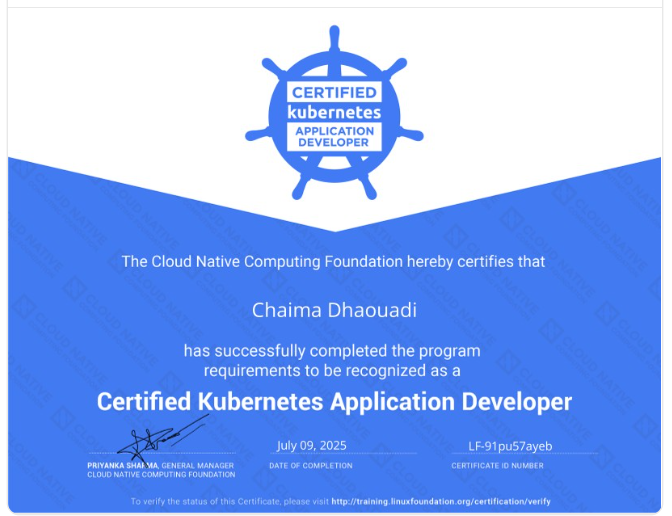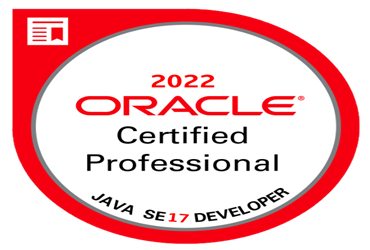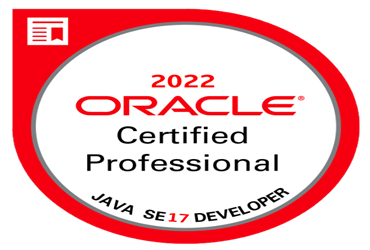Vous avez une question? nous contacter sur : contact@sip-academy.com
Téléphone : +216 98 787 521
WhatsApp : +216 51 363 634
Java OCA 11
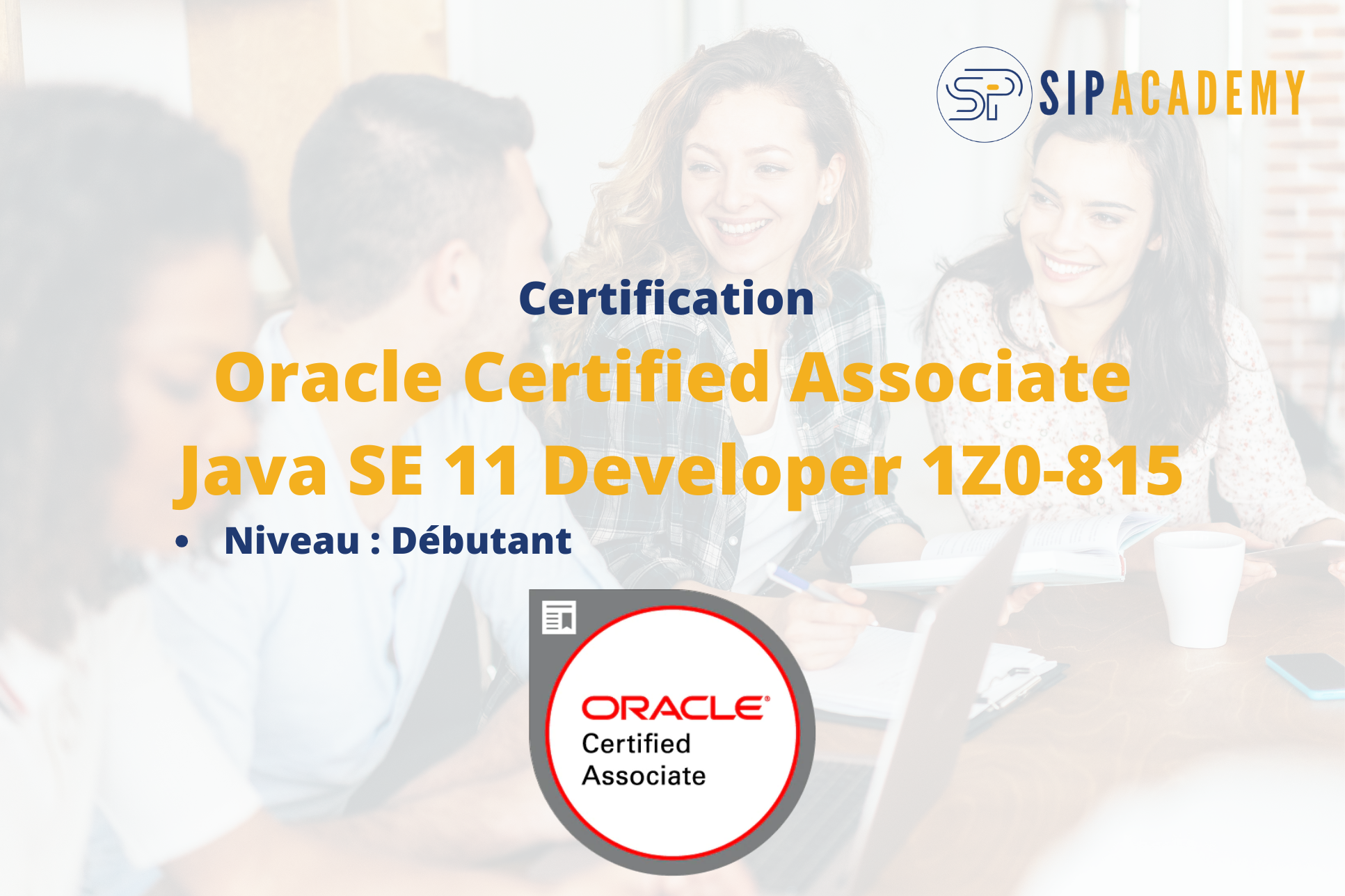
220
185
Description
We present below the content of the training :
Java Basics
- Define the scope of variables
- Define the structure of a Java class
- Create executable Java applications with a main method; run a Java program from the command line; produce console output
- Import other Java packages to make them accessible in your code
- Compare and contrast the features and components of Java such as: platform independence, object orientation, encapsulation, etc.
Working With Java Data Types
- Declare and initialize variables (including casting of primitive data types)
- Differentiate between object reference variables and primitive variables
- Know how to read or write to object fields
- Explain an Object's Lifecycle (creation, "dereference by reassignment" and garbage collection)
- Develop code that uses wrapper classes such as Boolean, Double, and Integer
Using Operators and Decision Constructs
- Use Java operators; use parentheses to override operator precedence
- Test equality between Strings and other objects using == and equals ()
- Create if and if/else and ternary constructs
- Use a switch statement
Creating and Using Arrays
- Declare, instantiate, initialize and use a one-dimensional array
- Declare, instantiate, initialize and use multi-dimensional arrays
Using Loop Constructs
- Create and use while loops
- Create and use for loops including the enhanced for loop
- Create and use do/while loops
- Compare loop constructs
- Use break and continue
Working with Methods and Encapsulation
- Create methods with arguments and return values; including overloaded methods
- Apply the static keyword to methods and fields
- Create and overload constructors; differentiate between default and user defined constructors
- Apply access modifiers
- Apply encapsulation principles to a class
- Determine the effect upon object references and primitive values when they are passed into methods that change the values
Working with Inheritance
- Describe inheritance and its benefits
- Develop code that makes use of polymorphism; develop code that overrides methods; differentiate between the type of a reference and the type of an object
- Determine when casting is necessary
- Use super and this to access objects and constructors
- Use abstract classes and interfaces
Handling Exceptions
- Differentiate among checked exceptions, unchecked exceptions, and Errors
- Create a try-catch block and determine how exceptions alter normal program flow
- Describe the advantages of Exception handling
- Create and invoke a method that throws an exception
- Recognize common exception classes (such as NullPointerException, ArithmeticException, ArrayIndexOutOfBoundsException, ClassCastException)
Working with Selected classes from the Java API
- Manipulate data using the StringBuilder class and its methods
- Create and manipulate Strings
- Create and manipulate calendar data using classes from java.time.LocalDateTime, java.time.LocalDate, java.time.LocalTime, java.time.format.DateTimeFormatter, java.time.Period
- Declare and use an ArrayList of a given type
- Write a simple Lambda expression that consumes a Lambda Predicate expression
Working with modules
- What is a Java module?
- Creating and runing Java module
- Modular applications
- Export/Require/Transitive Require
- Basic commands
Sections Durée
Java Building Blocks 1 jour(5h)
Operators and statements 1 jour(4h)
Core Java APIS 1 jour(5h)
Methods and encapsulation 1 jour(5h)
Class design 1 jour(5h)
Exceptions 1 jour(3h)
Modules 1 jour(4h)
Quiz and exam certification 1 jour(4h)
Détails Formation
- Niveau :Débutant
- Durée :35H
- Catégorie :Certifiante
- Prix :500DT
Prochaines Sessions
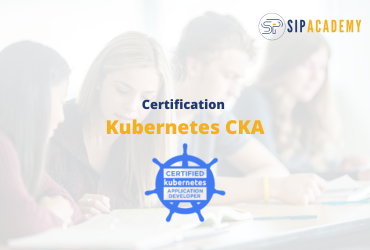
CKAD-Décembre-2025
06 Dec 09:00
03 Jan 16:00
-64f6585b751cb.png)
OCA [Décembre 2025]
06 Dec 09:00
03 Jan 16:00
Anciennes Sessions

OCP 17/21 [Septembre 2025]
21 Sep 10:00
01 Nov 16:00
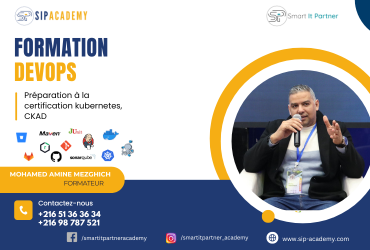
Devops-CKAD-Septembre-2025
20 Sep 10:00
26 Oct 16:00
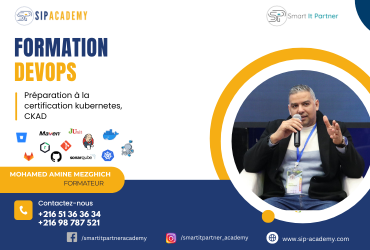
Devops-CKAD-Aout-2025
16 Aug 09:00
20 Sep 13:00
 (1)-678237ac984cb-681f5b2385e9a.png)
FullStack Spring Angular Devops[Juillet 2025]
05 Jul 09:00
10 Aug 16:00
-643f281261e45.png)
Java OCP 17[Avril_Mai 2025]
12 Apr 09:00
31 May 16:00
 (2)-678237ac97178.png)
FullStack Spring Angular Devops
25 Jan 09:00
16 Mar 16:00
 (2)-67479309964a2.png)
Préparation aux certifications CKA et CKAD
07 Dec 09:00
26 Jan 13:00
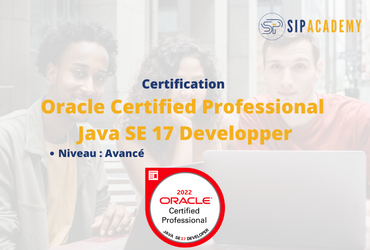
Java OCP 17
17 Nov 09:00
29 Dec 16:00
 -66e192e00f3ea.png)
Cursus Java [Session Octobre 2024]
05 Oct 09:00
30 Mar 16:00
-66caef9ba804f.png)
Fullstack Spring Boot Angular Mobile - Septembre 2024
08 Sep 09:00
06 Oct 16:00
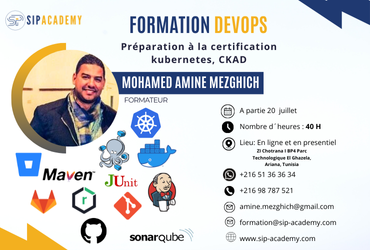
Devops-Juillet-2024
20 Jul 09:00
18 Aug 16:00
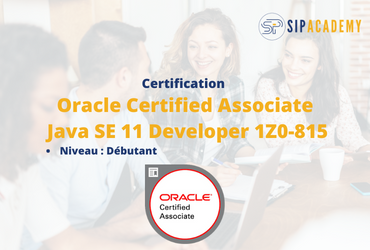
OCA 17- Session Juillet 2024
14 Jul 09:00
28 Jul 16:00
